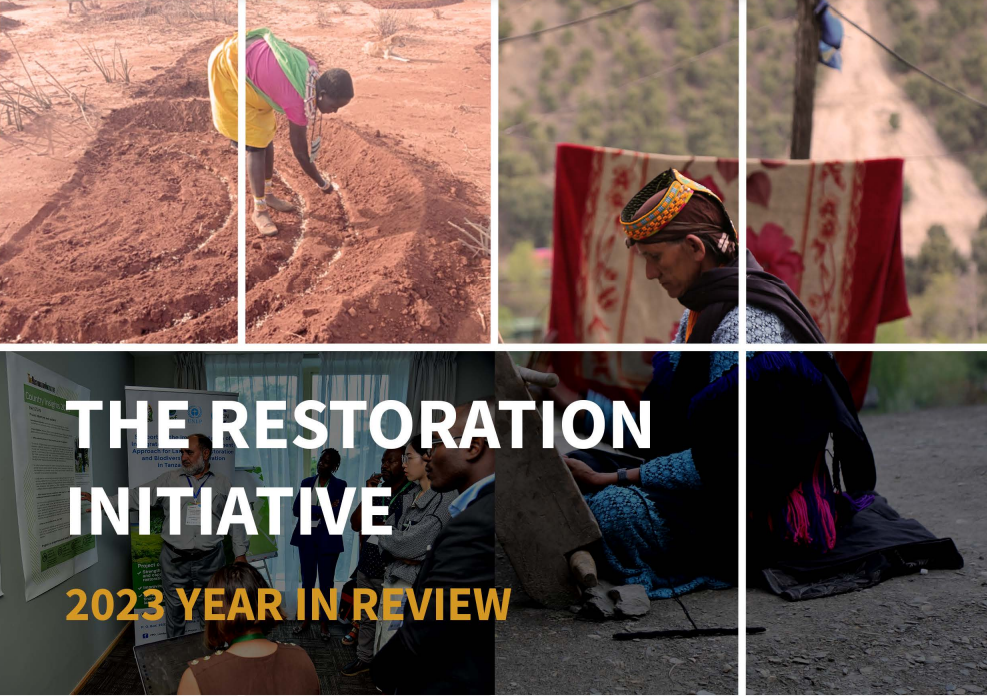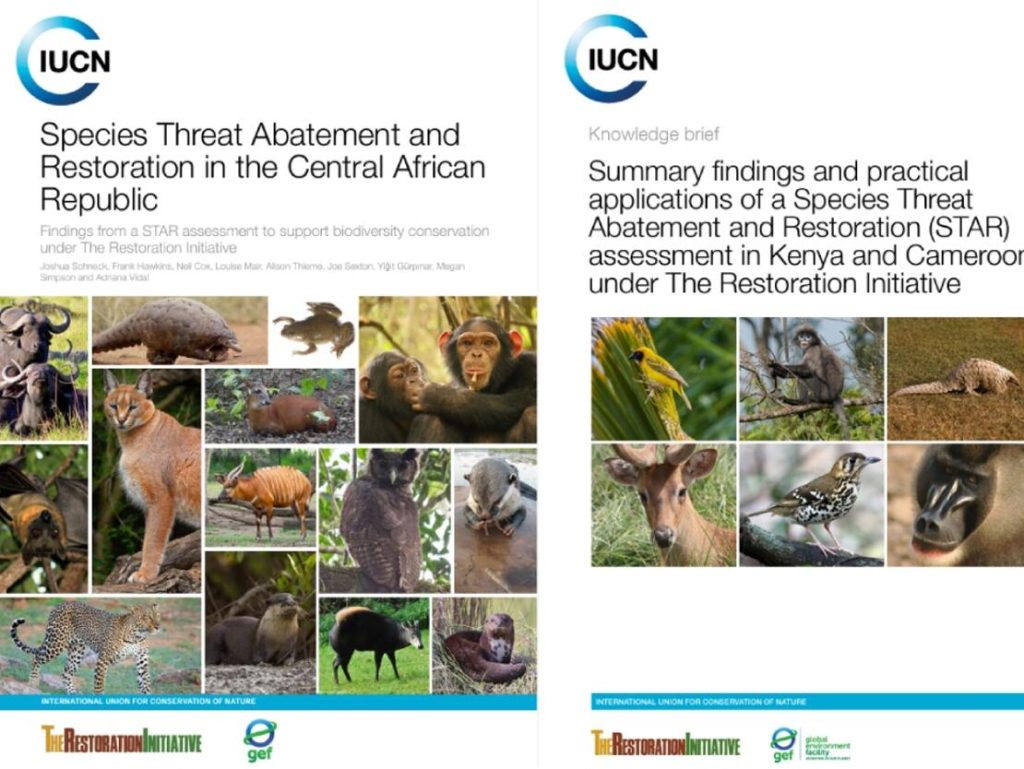Restoring Our Landscapes: A Global Effort under The Restoration Initiative
Land degradation is a global challenge, impacting nearly 2 billion hectares of land used for agriculture, pasture, and forestry. Deforestation and land degradation pose significant threats to global biodiversity, climate stability, and food security. The 2023 Year in Review publication showcases the achievements of The Restoration Initiative (TRI), a global program working to restore degraded landscapes in nine Asian and African countries and with the support of three Global Environment Facility agencies – the International Union for Conservation of Nature, the Food and Agriculture Organization of the United Nations, and the United Nations Environment Programme
As the final year of the global support project approaches, the 2023 Year in Review highlights the progress made towards reaching the Bonn Challenge goal of bringing 350 million hectares of degraded and deforested landscapes into restoration by 2030.This ambitious goal is being pursued amidst the United Nations Decade on Ecosystem Restoration (2021-2030).
The publication showcases TRI’s support mechanisms to ensure that its projects are effective and achieve lasting impact. This includes improving policies for FLR at national and sub-national levels, providing tools and training on developing restoration-linked businesses and investments, enhancing capacity to plan, implement and monitor restoration, increasing awareness, knowledge sharing and partnership on restoration and facilitating replication, mainstreaming and linking of successful restoration efforts and initiatives.
Reporting Results of Restoration on the Ground
In this publication, TRI showcases diverse strategies tailored to the unique needs of each country. These strategies include establishing value chains for non-timber forest products, implementing agroforestry and sustainable agricultural practices, empowering local communities with the skills and resources needed to enhance their income-generating activities, increasing protected areas through community agreements to restore important ecosystems, approving national forest and landscape policies and local-level zoning and development plans, and increasing benefits from ongoing restoration efforts through access to voluntary markets.
Highlights and Progress
The Restoration Initiative 2023 Year in Review publication highlights the progress made by TRI projects, which is measured through nine core indicators that track the program’s impact on hectares under restoration and improved land practices, mitigation of greenhouse gas emissions, number of beneficiaries, and enabling conditions. All indicators are performing well, and program goals are expected to be surpassed by the end of the projects in 2026.
Examples of project achievements include:
- Cameroon: Supporting 12 nurseries that have produced over 631,376 bamboo, non-timber forest product and mangrove seedlings.
- Central African Republic: Supporting local communities in developing the capacity to produce over 100,000 seedlings, paving the way for on-the-ground restoration efforts.
- China: Supporting 16 pilot state-owned forest farms in developing FLR-based innovative forest management and restoration plans to restore large areas and improve ecosystem services.
- Democratic Republic of Congo: Producing and distributing at least 3,022,402 seedlings of various appropriate species to 5,828 beneficiary households to implement restoration interventions.
- Guinea-Bissau: Identifying three project sites as national mangrove champions, restoring almost 800 ha of mangroves.
- Kenya (arid and semi-arid lands): Working with communities to implement new technologies such as microcatchment and Vallerani restoration techniques.
- Kenya (Tana Delta): Supporting sustainable land management in Indigenous community conservation areas with an ongoing process for establishing community wildlife conservancies.
- Pakistan: Establishing 14 chilgoza forest conservation and protection committees, which play a key role in restoration efforts.
- Sao Tome and Principe: Establishing a network of 31 public and private nurseries that have produced more than 200,000 seedlings from over 30 species.
- United Republic of Tanzania: Continuing restoration work in the Great Ruaha and Lake Rukwa landscapes focusing on sustainable forest management, integrated water resources management, sustainable agriculture and livestock keeping, energy-saving cooking technologies, and alternative sustainable income-generating activities.
Key Learnings and Future Directions
TRI has demonstrated the importance of community engagement and ownership, cross-sectoral collaboration, policy and governance and sustainable financing.
TRI’s 2023 Year in Review emphasizes that restoration is a long-term investment that requires commitment, innovative financing, and integration into broader societal frameworks. Moving forward, TRI will continue to work towards its goals by building on lessons learned and sharing its experiences with the global restoration community. TRI projects will also continue to seek out new funding opportunities to support the continuation of restoration activities.
The publication concludes with the sentiment that “TRI will live on in countries”, highlighting the program’s enduring impact on the landscapes and communities it has touched.
Read the full publication here.


